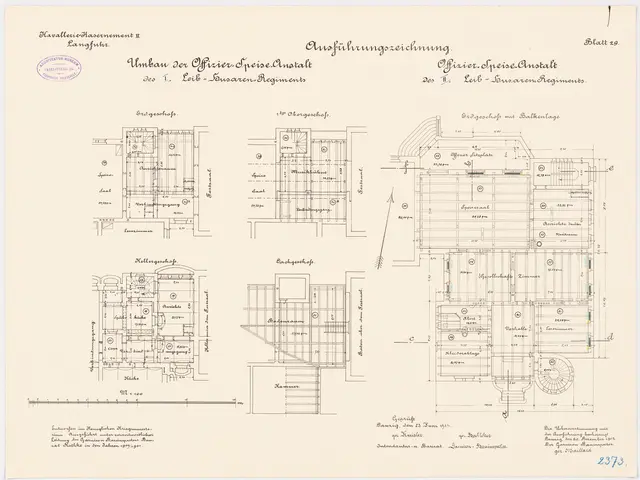Port employees in Northern Germany to receive a 3.1% pay increase
After a series of intense negotiations, the union Verdi and the Central Association of German Sea Ports (ZDS) have reached a preliminary agreement on a collective bargaining agreement that will bring about a 3.1% hourly wage increase for North German port workers, effective from August 2025. This agreement affects approximately 11,000 employees in seaport companies.
The agreement, which is valid for a period of twelve months, was reached following negotiations where Verdi initially demanded an 8.4% wage increase. However, after careful consideration of economic realities, the parties settled on the agreed percentage.
In addition to the wage increase, employers have agreed to provide higher bonuses starting in 2026. Furthermore, port workers will receive a one-time payment of either €1,200 or €1,800, depending on their respective companies. Union members will also enjoy an additional paid day off annually.
ZDS chief negotiator Torben Seebold underscored the deal's importance, stating that it considers economic realities and secures port competitiveness in a demanding market environment.
It is worth noting that this agreement follows a series of lengthy negotiations in 2024, which involved several warning strikes in major ports such as Hamburg, Bremerhaven, Wilhelmshaven, Bremen, Emden, and Brake. However, with this new agreement in place, it is unlikely that there will be any further warning strikes.
The formal contract still needs to be finalized in writing by Verdi. Once finalized, the agreement will provide North German port workers with a modest pay rise, improved bonuses, and extra paid leave, offering a much-needed boost amidst current economic challenges.
[1] Source: Verdi press release, ZDS press release.
In light of the ongoing commitment to industry competitiveness, port companies operating in Bremerhaven will also focus on boosting their financial resources, with potential investments in energy sector projects to enhance the efficiency and sustainability of port operations. Similarly, the aerospace industry might find opportunities for collaboration in logistics and transportation, given the strategic proximity of Bremerhaven to key European aircraft manufacturing hubs.








